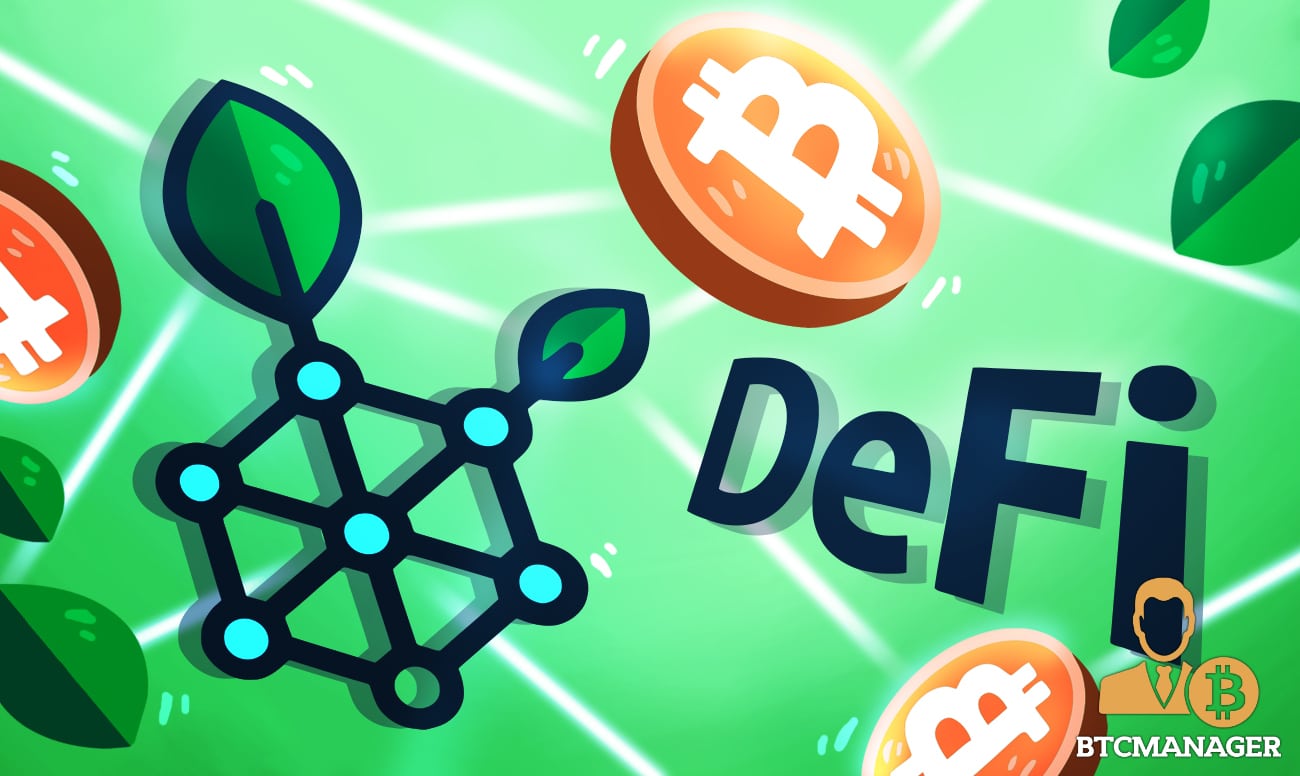RSK takes the lead on the Bitcoin-Powered NFT Space

With the unprecedented rise of decentralized finance (DeFi) and non-fungible-tokens (NFTs) it was about time leading public blockchains such as RSK would join in the movement.
RSK Actively Shaping DeFi Landscape
DeFi was the theme of the cryptocurrency industry in 2020. This burgeoning subspace within the wider digital asset industry boomed last year in what is now remembered as the “DeFi Summer of 2020.”
While the vast majority of the DeFi landscape currently runs on Ethereum, it has its limitations — majorly in the form of sky-high gas fees to confirm any transaction. This is where RSK seeks to leverage the Bitcoin blockchain to flourish DeFi.
By using its innovative blockchain-powered decentralized service for blockchain domains, RSK is making DeFi easier for everyone. In essence, RNS helps change seemingly complex and hard-to-remember blockchain wallet addresses into easily readable addresses. It should be noted that RNS is just a part of the rapidly expanding DeFi ecosystem powered by RSK smart contracts.
As previously reported by BTCManager, RSK-powered DeFi platform Money on Chain (MoC) launched its decentralized stablecoin protocol on the RSK network. Recently, MoC launched TEX, an innovative DEX platform functioning as a robust secondary market for MoC-native assets.
Given the fact that RSK is connected to the Bitcoin blockchain via a 2-way peg, it uses Smart Bitcoins or RBTC to fuel its internal ecosystem. This enables users to lock up their BTC and get an equivalent amount of RBTC on the sidechain. Subsequently, RBTC can be used to deploy or interact with smart contracts and dApps on the RSK blockchain.
In the same vein, BTCManager reported in April last year how the RIF community had laid down the building blocks for a DeFi ecosystem dubbed RIF on Chain, backed by RIF tokens built on top of the RSK blockchain.
The aforementioned ecosystems built on the RSK network are a testimony to the robust nature and development work being carried out by RSK. In addition, it offers an economically viable alternative to DeFi enthusiasts who are annoyed by the astonishingly high gas fees on the Ethereum network.
Surprise: RNS Was Always an NFT
Virtually everything can be turned into an NFT — art, literature, music, concert tickets, virtual identity, and others. Currently, famous billionaire investors such as Mark Cuban are riding the NFT train and it won’t be a stretch to state that we are still pretty much at the infant stage of this multi-billion dollar market.
With the recent hype surrounding NFTs, many might be surprised that RSK blockchain has always been in the non-fungible tokens space in the form of different products and services it offers to its users.
For instance, take RNS. Many would not know but intrinsically, RNS has always been an NFT. What’s more, RNS can even be traded like a typical NFT on an NFT marketplace.
Every RNS blockchain domain can essentially be traded as an NFT as there is and always will be only one of a kind of each domain, i.e., it will always be non-fungible.
What separates RNS domains as an NFT from other NFTs is that, unlike the rest, RNS domains actually have a utility in that it is something that a user might actually put to use. RNS domain owners can use their domains to receive, send, or trade any cryptocurrency, token, and other similar items. Moreover, the RNS domains can be further leveraged to redirect users to a DeFi platform or store profile information such as avatar, email address or Twitter handle.
Recently, blockchain and open finance venture builder and investor Coinsilium entered into an MoU with Indorse Pvt. Ltd., to launch an NFT technology-development studio in Gibraltar called “Nifty Labs.” This studio will work toward developing robust smart contract systems for NFT applications that would include a bridge for NFTs on the Bitcoin network via the RSK blockchain.
RNS domains can be traded as typical NFTs via the RIF Marketplace. Simply put, the RIF Marketplace is the one-stop-shop to trade everything within the RIF ecosystem. It can be called the marketplace that is working toward bridging the gap between the current state of global financial infrastructure and the decentralized, inclusive, and fair DeFi-powered world commerce as envisioned by RSK.












